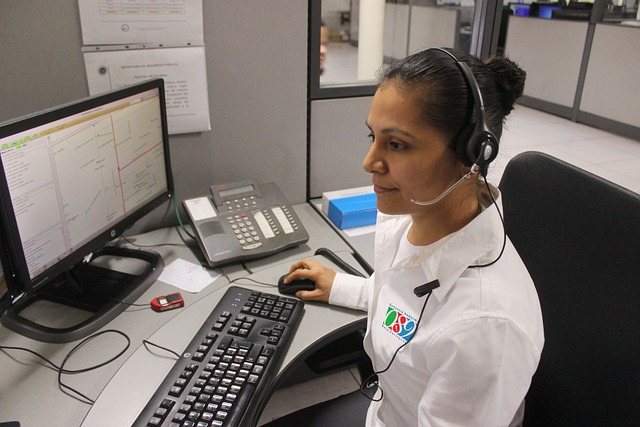Witnessing a crime can plunge you into a whirlwind of urgency and confusion. What do you do? In this guide, you’ll find concise, actionable steps on what to do if you’re a witness to a crime, prioritizing your safety while preparing you to assist in the crime’s aftermath responsibly.

Key Takeaways
- Ensure personal safety before taking any actions as a witness to a crime by assessing the situation, finding a secure spot, and avoiding direct involvement in the criminal activity.
- Report the crime to law enforcement immediately with as much detail as possible, and consider using anonymous reporting options if desired for personal safety or privacy concerns.
- Observe and document details of the crime meticulously, cooperate with law enforcement by providing honest statements and updating with new information, and prepare for possible court proceedings by reviewing witness rights, and statements, and seeking legal counsel.
Ensuring Your Safety
The chaos that often ensues in the wake of a crime can be overwhelming. However, amid the confusion, it’s imperative to prioritize your safety. It’s not enough to simply witness a crime; you must protect yourself while doing so. This crucial step involves assessing the situation, finding a secure spot, and avoiding direct involvement in the crime. First and foremost, take a moment to assess the situation. It’s important to gauge the severity of the crime and the potential risks involved. This will help you decide on the best course of action, whether it’s finding a safe location, reporting the crime, or determining whether you need to stand aside and wait for law enforcement to arrive.
Finding a secure spot
Once you’ve assessed the situation, the next step is to find a secure spot. This will not only protect you from potential harm but also allow you to:
- observe any subsequent events without attracting the attention of the perpetrators
- have a vantage point
- be far removed from the immediate vicinity of the criminal activity.
This way, you can contribute valuable information to the investigation while keeping yourself safe. While it’s natural to want to help, especially if the crime involves someone you know or care about, it’s essential to avoid direct involvement. Interfering in the crime could compromise your safety and potentially interfere with law enforcement’s ability to handle the situation. It’s best to remain anonymous and detached from the crime scene to ensure your testimony remains unbiased and isn’t influenced by interactions with the perpetrators or victims.
Reporting the Crime

The next crucial step after ensuring your safety is to report the crime. Your testimony can be essential in securing a conviction, making it vital to the criminal justice system. When reporting, it’s important to:
- Call 911 immediately if the crime is still in progress or just occurred.
- Provide as many details as you can, such as the nature of the crime, a description of the suspect, and the location of the incident.
- If you wish, you can also choose to remain anonymous.
Determining when to call 911 can be a challenging decision. However, it’s generally advised to call 911 immediately if the crime poses an immediate threat to life or property, or if a serious crime such as a violent act is still in progress. By doing so, you provide authorities with timely and accurate information, which can lead to the swift arrest and prosecution of the criminal.
Providing essential details
While reporting a crime, it’s imperative to provide essential details about the incident. Make sure to:
- Explain the nature of the crime
- Give a detailed description of the suspect
- Specify the location of the incident
- Additionally, if you notice any injuries, be sure to report them to ensure a prompt medical response.
Stay on the line with the 911 operator and only hang up once they confirm it’s okay to do so. You may have valid reasons for wanting to remain anonymous when reporting a crime. Rest assured, you have the right to do so under the protection of the Fifth Amendment. However, keep in mind that if your information is critical to the case, you may be identified and subpoenaed later. If you wish to remain anonymous, consider using community tip lines or online reporting systems that do not require personal identification.
Observing and Documenting Details

Once you’ve ensured your safety and reported the crime, it’s time to observe and document details. Your detailed eyewitness information plays a key role in the investigation of the case. It helps in corroborating evidence and creating a solid foundation for legal action. Be aware, however, that human memory can be unreliable and fade over time or due to stress, which is why it’s essential to record your observations as soon as possible. In the turmoil that immediately follows a crime, it can be challenging to know what details to look for. However, some key aspects can provide valuable insights into the crime. Pay close attention to the actions, behavior, and appearance of the individuals involved. Note the time and sequence of events carefully, as this is essential in establishing a clear and accurate timeline of the crime. Also, be aware of any vehicles involved in the incident and try to remember their make, model, color, and, if possible, license plate number.
Recording your observations
Recording your observations immediately after witnessing a crime is crucial. This practice helps preserve details that might later be forgotten. Here are some tips for taking effective notes:
- Note the time, date, and case reference when writing your notes.
- Keep a chronological record of events.
- Include any additional details that you remember later.
By following these tips, you can ensure that your notes are accurate and comprehensive.
Be accurate and clear in your notes, and avoid the influence of others to provide a transparent and individual account.
Preserving physical evidence
Preserving physical evidence at a crime scene is crucial for the integrity of the legal process. If you happen to come across any physical evidence, follow these steps:
- Avoid touching or moving the evidence to minimize the risk of contamination.
- If any interaction with the evidence occurs, note it in detail.
- Make sure to follow police instructions on how to handle the evidence without disrupting the crime scene.
Cooperating with Law Enforcement
After you’ve observed and documented the details of the crime, it’s time to cooperate with law enforcement. Providing accurate contact information to law enforcement is critical as it allows officers to follow up for additional information or clarification. Be prepared to actively cooperate with law enforcement as part of the investigation, which includes staying in regular contact with the officer handling your case.
Answering questions honestly
When interacting with law enforcement, honesty is paramount. Here are some tips to keep in mind:
- Provide a detailed account of what you witnessed
- Ensure that your testimony is accurate and truthful
- Remember, credible witness accounts are essential for the accurate delivery of justice.
Following police instructions
Following police instructions is crucial for your safety and to avoid additional legal complications. It’s also permissible to ask for clarification if you do not understand police officers’ instructions during an investigation. If you believe an officer’s instructions are unlawful or violate your rights, you can follow them at the moment but later file a complaint with Internal Affairs.
Updating law enforcement with new information
New information might surface after your initial interaction with law enforcement. If this happens, it’s crucial to contact the investigating officer to update your statement.
This proactive approach can prove instrumental in the investigation of the crime.
Preparing for Court Proceedings
If you’re asked to testify in court, it’s essential to be prepared. This involves familiarizing yourself with your rights as a witness, reviewing your witness statement, and consulting a criminal defense attorney.
Your testimony can significantly contribute to the criminal case, making your preparation vital to the criminal justice system.
Familiarizing oneself with witness rights
Understanding your rights and responsibilities as a witness is crucial. This includes knowing when you can object to a subpoena and when you are legally required to comply with it. If you are unsure of your rights, it’s advisable to seek guidance from an attorney.
Reviewing your witness statement
Before testifying, follow these tips:
- Review your witness statement. This will help refresh your memory and ensure that your testimony is accurate.
- When asked to answer questions in court, remember to take a moment to fully understand the question before responding.
- Avoid guessing and acknowledge when you do not recall specific details.
Consulting an experienced criminal defense attorney
Navigating the legal system can be complex. Thus, it’s advisable to consult an experienced criminal defense attorney, also known as a defense counsel. They can help you with:
- Understanding the legal process and the potential implications of your testimony on the case
- Preparing you for the courtroom environment
- Advising you on how to deal with cross-examination
Emotional and Mental Health After Witnessing a Crime
Witnessing a crime can have long-term emotional and psychological effects. It’s important to recognize these effects and address them promptly. Prioritize your well-being, take time to relax, seek emotional support, and look after your mental and physical health.
Recognizing signs of trauma
After witnessing a crime, such as a child abuse, you may experience a ‘trauma reaction’. This is a normal coping response and can manifest mentally, physically, or both. Common signs of trauma include:
- irritability
- restlessness
- frequent crying
- increased fear and anxiety in public
- self-blame
- feelings of isolation
Physical symptoms can manifest as fatigue, regular headaches, and nausea.
Talking to someone about your experience
Talking about your experience can be therapeutic. You can seek emotional support from friends, family, therapists, or other professionals, and even a trusted family member.
Remember, it’s okay to take time to process your experience and start talking when you feel ready.
Accessing witness support services
If the crime was particularly traumatic, consider reaching out to witness support services. These services can offer:
- Advocacy within the criminal justice system
- Resources
- Crisis counseling
- Referrals to community and victim services
Additionally, they can provide free and confidential assistance to other witnesses of crimes.
Legal Obligations and Protections for Witnesses
As a witness, it’s important to understand your legal obligations and protections. This includes knowing that you must report certain crimes and the right to remain anonymous.
Let’s delve deeper into these legal aspects, particularly focusing on the parties involved.
Understanding your legal duty to report
In most states, citizens are not legally required to report all criminal activities they witness. However, laws typically focus on the failure to report serious crimes, such as felonies. Some states even have specific laws that make it a crime not to report certain offenses.
For example, in Ohio, failure to report a felony can result in being charged with a fourth-degree misdemeanor, which may include jail time and/or a fine. Therefore, understanding your legal duty to report is crucial.
Exercising your right to remain anonymous
You might opt to remain anonymous to fulfill your role in providing corroborative evidence while ensuring personal privacy. This right is supported by the Personal Information Protection and Electronic Documents Act (PIPEDA). However, keep in mind that if your information is critical to the case, you might be identified and subpoenaed later.
Protection from retaliation and harassment
As a witness, you have certain protections:
- You are protected from retaliation and harassment.
- The Witness Security Program, operated by the U.S. Marshals Service, offers 24-hour protection in high-threat scenarios.
- In some cases, an immunity agreement can be negotiated to protect you from prosecution related to your testimony while on the witness stand.
- You have the right to lodge a formal complaint if you believe your rights have been compromised.
Summary
In conclusion, witnessing a crime can be a challenging and traumatic experience. However, by ensuring your safety, accurately reporting the crime, observing and documenting details, cooperating with law enforcement, preparing for court proceedings, taking care of your emotional and mental health, and understanding your legal obligations and protections, you can play a pivotal role in the pursuit of justice. Remember, as a witness, your contribution can make a significant difference in the outcome of a case.
Frequently Asked Questions
What should I do if I witness a crime?
If you witness a crime, ensure your safety first, then report the details to law enforcement and cooperate with them in the investigation. Take care of your emotional well-being and prepare for potential court proceedings.
Should I interfere if I witness a crime in progress?
It’s best to avoid direct involvement in the crime to protect your safety and avoid compromising the investigation. Instead, report the crime to law enforcement and observe and document as many details as possible.
When should I call 911 if I witness a crime?
Call 911 immediately if the crime is in progress or has just occurred, particularly if there is an immediate threat to life or property, or if a serious crime like a violent act is ongoing.
What should I do if I find physical evidence at a crime scene?
If you find physical evidence at a crime scene, avoid touching or moving it to prevent contamination. Note its presence and follow the instructions of law enforcement authorities.
What are my rights as a witness?
As a witness, you have the right to remain anonymous when reporting a crime and to consult with an attorney if your testimony might incriminate you. You can also object to a subpoena under certain conditions. For criminal legal representation contact: Darren Levitt of Levitt Legal.
